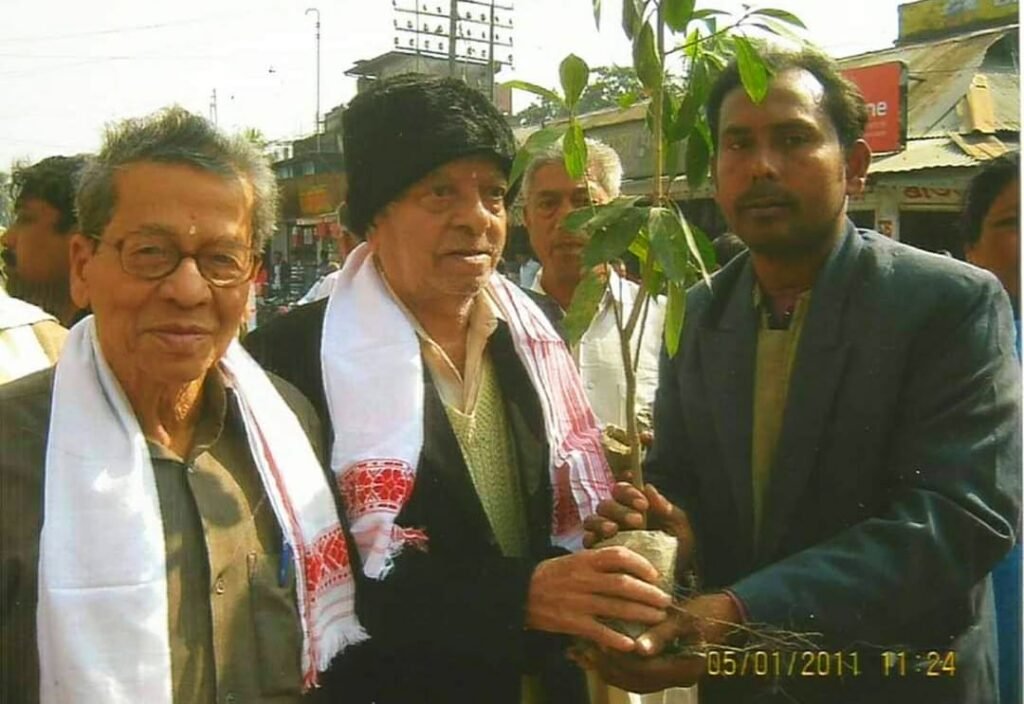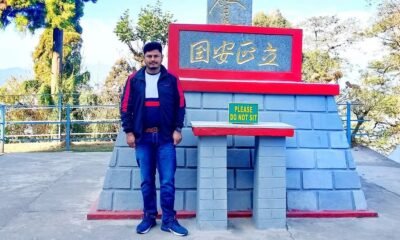Featured
Assam: Mobile Theatres facing uncertain future due to COVID-19 pandemic

The Mobile Theatres in Assam have been severely hit in the prevailing situation following the outbreak of COVID-19 pandemic. Uncertainty looms large over the normal functioning of various sectors including this most-efficient mass media format. Last year the long duration of lockdown has adversely affected normal life with the daily wage earners being the worst sufferers. But this year also same condition.
Losing a day’s performance costs a financial loss of around Rs 1 lakh for a theatre group. Each of the more than 60 such theatre groups across the State give employment to 100 to 150 people. These include artistes, builders of pandals (temporary structure for performance) and electricians as well as other technicians who look after the light and sound arrangements.
In the first week of August every year, these theatre groups set out on a nine-month journey, reaching out to people in every nook and corner of the state.
Kiran Lahkar, wife of late Achyut Lahkar, told Times of Northeast, “The workers of mobile theatre are facing a tough time. The industry as a whole is staring at massive losses due to coronavirus outbreak of COVID-19. However, this potent means of mass media and entertainment must saved at this critical juncture. The government should look into the matter.”
Veteran theatre personality octogenarian Krishna Roy — who has around 60 years of experience in this field besides running independently the popular ‘Abahan Theatre’ for about 42 years — expressed unhappiness over the situation. He expressed hope that the problem will be solved; and in this context,
Roy said, Earlier we have paid minimum amount of Rs 9000 to the workers.But from last year they have suffered a huge financial crises for their. “The role of the State government must be of prime importance. In the present situation, people should strictly follow the COVID -19 protocols laid down by the government to cope up with the situation.
Also Read: 100 million-year-old bones of sauropod dinosaurs discovered in Meghalaya
Noted theatre personality and producer of ‘Kohinoor Theatre’, “Tapan Lahkar has also expressed concern over the situation.
Tapan said, “Corona has ruined all Mobile Theatre industry in 2020-2021, More then 150 people involved in a theatre group. They have suffered a lots of financial crises specially. We have to follow COVID protocol, but govt should look into the matter.”
The mobile theatre groups of Assam are known as ‘Bhraymaman Natyadals’ in Assamese). Achyut Lahkar was the father of the Bhryamyman or Mobile theatre and gave birth to mobile theatre in Assam in the 1960s.

He founded the popular Natraj Theatre at Pathsala in 1963 which performed across Assam and in other states for nearly 40 years.The troupes are made up of a collective of actors, singers, dancers, directors, action artists, makeup artists, workers, and the producer. These mobile theatre groups perform at villages, towns and cities within the State. The theatre groups offer a popular medium of entertainment; and are an integral part of the Assamese culture.
Edited by- Sasanka Talukdar
For more stories follow our page Times of Northeast on Facebook, Twitter, Instagram, YouTube, LinkedIn
Visit our website https://timesofnortheast.com
Times of Northeast is an independent digital news portal which seeks to grab the attention of rational-minded people from Northeast India.
















